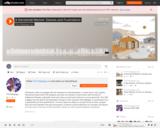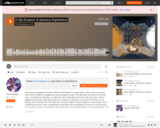
Oftentimes, when we engage with the framework of decolonization, it comes from a very specific theoretical strand within the academy and does not include or interconnect with the lives of Indigenous Peoples, especially those who have survived and continue to survive genocide. This OER engages with the idea of decolonization through a short narrative that highlights a conversation from a grandchild and their grandmother. The story does not adhere to a linear format of time, yet goes back and forth between the past and present, an almost cyclical reflections as one plans and figures out their future. The work of decolonization requires an entire epistemological, ontological, axiological, and methodological shift internally and externally. This is simply the beginning of a lifetime commitment.
Glossary
ahéhee’ – thank you
k’ad – phrase used to end a conversation or start a new one
kinaaldá – women becoming ceremony
nahjee’ – phrase used for expressing that I’m finished and/or go away.
shídeezhí – my little sister
shimásaní – my grandma
shiyazhí – my little one
yadilah – phrase used in frustration
References
Smith, L. T. (2012). Decolonizing methodologies: Research and Indigenous peoples. Zed Books.
Tuck, E., & Yang, K. (2012). Decolonization is not a metaphor. Decolonization: Indigeneity, Education, & Society, 1(1), 1-40.
- Subject:
- Arts and Humanities
- Ethnic Studies
- History
- Languages
- Literature
- Performing Arts
- Social Science
- U.S. History
- Material Type:
- Lecture
- Reading
- Provider:
- The Pedagogy Lab
- Provider Set:
- 2021 Pedagogy Fellowship
- Author:
- Charlie Amáyá Scott
- Date Added:
- 04/01/2021
